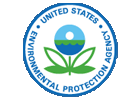Press Release******Press Release******Press Release
September 17, 2010
Pollution panel to weigh closing illegal loopholes in Washington’s building rules and strong controls for polluted runoff
WHAT: The Pollution Control Hearings Board will begin a trial to determine whether to throw out Clark County’s “special lopsided deal” under the state stormwater code.
The County’s plan allows harmful development without proper runoff controls.
The hearing raises issues of statewide importance, including the question of whether state vesting laws should trump efforts to protect rivers, streams and Puget Sound.
The vesting law allows developers to build projects under whatever rules are in place when they file a development application. This lets developers avoid any new rules that may be adopted later, even if the rules are adopted before anything is actually built.
WHEN: September 28, 2010 – October 1, 2010
Time: 9 a.m. to 5 p.m.
WHERE: Pollution Control Hearings Board
Environmental Hearings Offices—Room 301
1111 Israel Road S.W.
Tumwater, WA 98501
CONTACTS: Jan Hasselman, Earthjustice, 206-719-6512 (cell)
Dvija Michael Bertish, Rosemere Neighborhood Association, 360-281-4747
Brett VandenHeuvel, Columbia Riverkeeper, 503-348-2436
Mark Riskedahl, Northwest Environmental Defense Center, 503-768-6673
BACKGROUND: In February 2010, local residents and clean water advocates filed a challenge to Clark County’s on-going failure to protect rivers, streams and comply with laws limiting stormwater pollution. The county’s contested plan was developed with the Department of Ecology, the agency charged with regulating Clark County under state law and the federal Clean Water Act.
The public interest law firm Earthjustice filed an appeal on behalf of the Rosemere Neighborhood Association, Columbia Riverkeeper, and the Northwest Environmental Defense Center asking the Washington State Pollution Control Hearings Board to throw out a recent agreement between Clark County and the Washington Department of Ecology. Local residents and clean water advocates argue the state authorized inadequate development standards that will generate illegal stormwater pollution.
Stormwater runoff is federally regulated as a major source of water pollution. It contains toxic metals, oil, grease, pesticides, herbicides, bacteria and nutrients. Last year, the Environmental Protection Agency released a startling report on toxics in the Columbia Basin, which identified stormwater as a leading cause of toxic pollution in the Basin. When stormwater runs off parking lots, buildings, and other urban development, it carries with it toxic metals, particularly copper and zinc, which harm salmon and other aquatic life.
Under a lopsided deal reached in early January, Ecology agreed to allow Clark County to retain inadequate stormwater standards for new development in exchange for a promise to implement county funded stormwater mitigation projects.
However, Clark County is already required to implement these projects under federal law. Additionally, the agreement allows Clark County to mitigate new development anywhere in the county, up to three years after the development occurs.
The appealing groups are represented by attorneys Jan Hasselman and Janette Brimmer of Earthjustice.
About the Pollution Control Hearings Board
The Pollution Control Hearings Board acts like a court for appeals of state environmental regulations. The three board members hear appeals from orders and decisions made by the Department of Ecology and other agencies as provided by law. The Board’s function is to provide litigants a full and complete administrative hearing, as promptly as possible, followed by a fair and impartial written decision based on the facts and law. The Board is not affiliated with the Department of Ecology or any other state agency. The Board consists of three members, who are appointed by the governor and confirmed by the State Senate for staggered six-year terms.











![Washington State Water Quality Assessment [303(d)] Washington State Department of Ecology](http://www.rosemerena.org/home/wp-content/uploads/2009/03/ecy_logo.gif)

